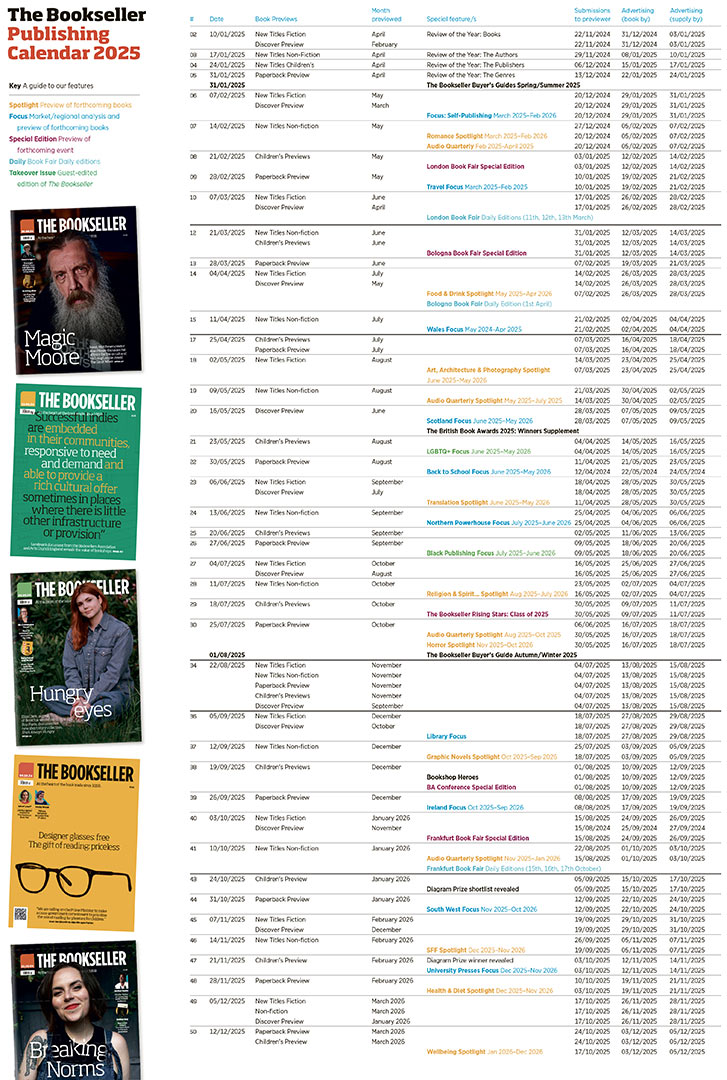You are viewing your 1 free article this month. Login to read more articles.
Publishing in a pandemic
Our society faces an unprecedented challenge from coronavirus and publishing is no exception to that. The pandemic has affected all of us in the books industry – booksellers have had to close shops, authors have had to move publication dates and cancel events, freelancers have seen their work and incomes shrink.
Publishers are facing incredibly difficult decisions about how to respond to the significant pressures on their businesses and how best to support their employees in the coming months.
We at the Publishers Association are endeavouring to provide the best possible information about where publishers can access financial assistance, communicate clearly to wider society about the extensive efforts publishers are making in response to this crisis and ensure that the UK publishing industry receives the additional support from government that it needs in order to remain the best in the world.
With that in mind, I wanted to share the five key asks that we are pushing for. They are born out of responses to a member survey and recent interactions. In no particular order, they are as follows:
Business rates relief
The publishing industry’s supply chain is facing significant disruption following the closure of central distribution centres and bookshops. Publishers are therefore concerned about the consequences of these closures on their income, despite the value they offer research creation, learning and entertainment. To offset this likely outcome, we are calling on the government to include publishing in H M Treasury’s business rates relief holiday offering. Publishers are directly involved in the retail of books but are not currently eligible for this rate relief and we believe this should change.
Extended interest-free period
Publishers have a long receivables timeline with 90 – 180 days normal for payments. As such, we will likely see the effect of Covid-19 over the next three to six months. Additionally, publishers work to long lead times, often preparing products for market nearly a year in advance. In light of this business model, the publishing industry would like the interest-free period of the business interruption loans on offer extended to two years, instead of one, to allow publishers welcome breathing space to repay their loan in alignment with their income cycles.
Part-time furlough
The package of measures provided for employed and self-employed workers is welcome. However, while our industry has many global success stories, it is predominantly made up of many small, independent and micro businesses. These businesses still have vital work to do and so are unable to furlough their staff in order to make use of the government’s Coronavirus Job Retention Scheme. Moreover, a significant proportion of their overhead expenditure is in preparation for 2021 and 2022; to drastically reduce their workforce at this time would therefore cause long-term damage to businesses. Publishers need more support to keep staff employed and working, though at a lower level. As such, we urge the government to introduce further economic support measures to allow employers to reduce full-time staff to part-time working hours, as an alternative to furloughing employees altogether.
Supply chain clarity
As alluded to above, the closure of bookshops, the complete and partial closure of distribution centres such as Bertram’s and Gardners, plus ongoing uncertainty about the status of warehousing and printing staff, means the publishing industry is extremely concerned about disruption to supply chains. The impact of this will be felt by our customers. For example, publishers are supplying the nation with critical learning resources to support home-learning, meaning that further difficulties to the supply chain could negatively impact the availability of these vital materials. The industry is also concerned about its future solvency as a further consequence of supply chain interruption. Publishers, booksellers, authors – everyone in the books industry relies on a robust, functioning supply chain. We therefore ask the government to provide further clarity over supply chain workers so publishers can prepare accordingly.
Funding for education resources
At a time when huge numbers of people are at home obeying government instructions, we would request that the government ensures that schools, colleges and universities have sufficient funds available to smoothly transition to home learning environments. Publishers are making significant discounts to these products to help schools make the purchases that are needed, but targeted funding would go a long way to help adequately equip learners from all backgrounds. Digital infrastructure will be key to ensuring continuity in our education system, along with funding for the physical resources that are better suited to households without adequate access to devices or internet connectivity. There are also logistical challenges here, and the industry stands ready to work with government in ensuring the right resources reach learners’ homes.
Publishing is an industry with a very long history, and we have of course survived many crises before. I have no doubt that we will come through this and continue to thrive. We at the Publishers Association will do everything in our power to help.
















